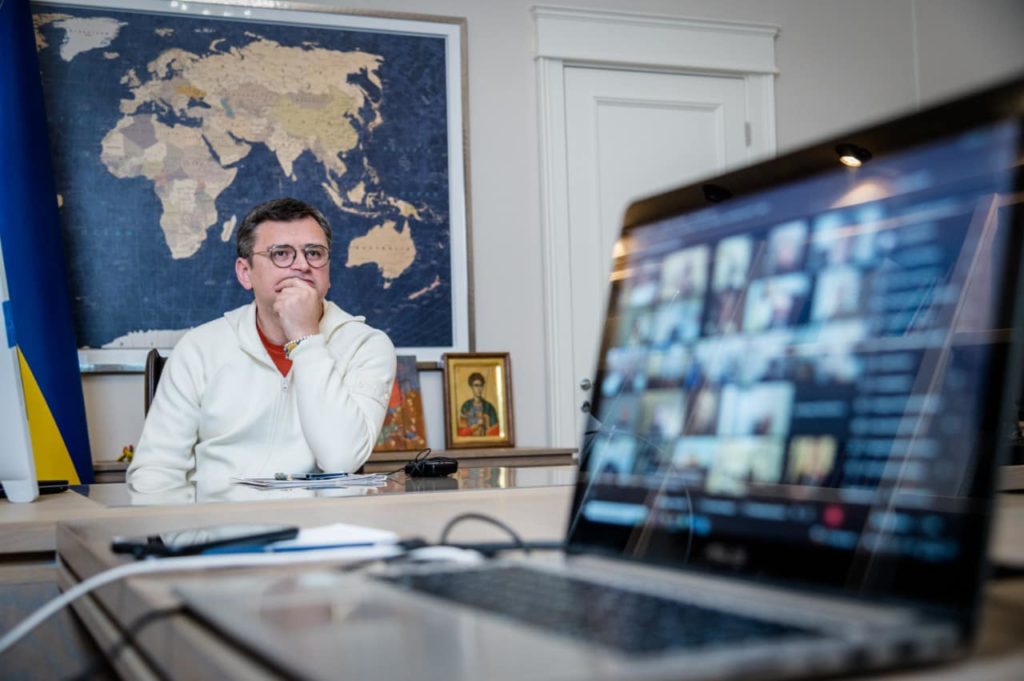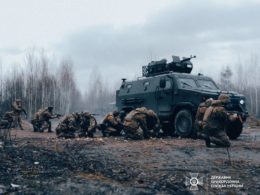Ukraine's top diplomat Dmytro Kuleba said in an interview with Interfax Ukraine that American officials did not criticize the pace of Ukraine's recent counteroffensive during President Volodymyr Zelenskyy's high-profile US visit last week. On the contrary, they recognized that Ukrainian forces "performed a miracle" given the constraints of waging a counterattack.
"American military assess the effectiveness of the counteroffensive not based on comments in social media and newspapers, but rather on the realities on the battlefield. They understand that what the Ukrainian Defense Forces have achieved in both the south and the east is a true military miracle, considering all the circumstances, such as minefields and Russia's air dominance.
Therefore, there was no criticism of the speed of the counteroffensive. On the contrary, there was a very substantive discussion on how to address the challenges faced by the Defense Forces so that the soldiers can move forward even more effectively," Kuleba said.
This represented a defense of Ukraine's military strategy after some analysts questioned why gains appeared more limited than initially expected during the counteroffensive in the east and south.
Kuleba voiced confidence the US will eventually provide ATACMS long-range missiles, calling it a "matter of time" as with prior advanced weapons systems like HIMARS that Washington initially hesitated to deliver.
"I am convinced that the supply of ATACMS missiles to Ukraine is a matter of time. Just as we have successfully resolved issues regarding other types of weapons."
He argued expanded Western armaments are urgent to stop Russia's ongoing manufacture of new missiles and drones that have pounded Ukrainian cities. Kuleba said it is cheaper for the West to help destroy Russian weapons plants than continually help to rebuild Ukraine's civilian infrastructure later destroyed by Russian strikes.
The foreign minister pushed Western allies for closing loopholes and increasing sectoral sanctions, especially targeting Russia's nuclear industry now that alternative nuclear fuel exists. He said sanctions only work by continually raising economic pressure on Russia and stopping evasion of penalties already imposed.
"Sanctions work under two conditions. First, when you effectively combat the mechanism of circumventing sanctions. And secondly, when you constantly and regularly increase sanction pressure."
He added that Ukraine is specifically seeking access to Russian state assets frozen abroad and also private Russian funds to help finance Kyiv's defense and recovery.
Kuleba downplayed recent frictions with Poland over grain exports through its territory, suggesting resolution is inevitable between the allied nations who must continue cooperating closely.
But he warned that false narratives about Ukrainian ingratitude toward Poland could pose long-term security risks by sowing public distrust. Kuleba stressed Ukraine remains deeply thankful for Poland's solidarity and aid since Russia's invasion began in February.

Kuleba also said a planned meeting of European Union foreign ministers in Kyiv signals Ukraine's special status as an EU candidate state on the front lines against Russian aggression. He said the gathering offers a platform to discuss more military assistance, security guarantees, further sanctions on Russia, and launching formal talks on Ukraine's eventual EU accession.
Regarding reforming the UN Security Council, Kuleba said, "What is happening now is the formation of principles according to which this Council will be reformed. But I really want to believe that this reform will take place not as a result of World War III, but as a result of sensible and responsible politics."
The interview offered insight into Ukraine's diplomatic strategy to maintain allied arms and funding flows six months into Russia's invasion. Kuleba suggested Ukraine will leverage its expanding military gains and critical role defeating Russia to press for larger defense packages and tighter economic penalties on Moscow.



